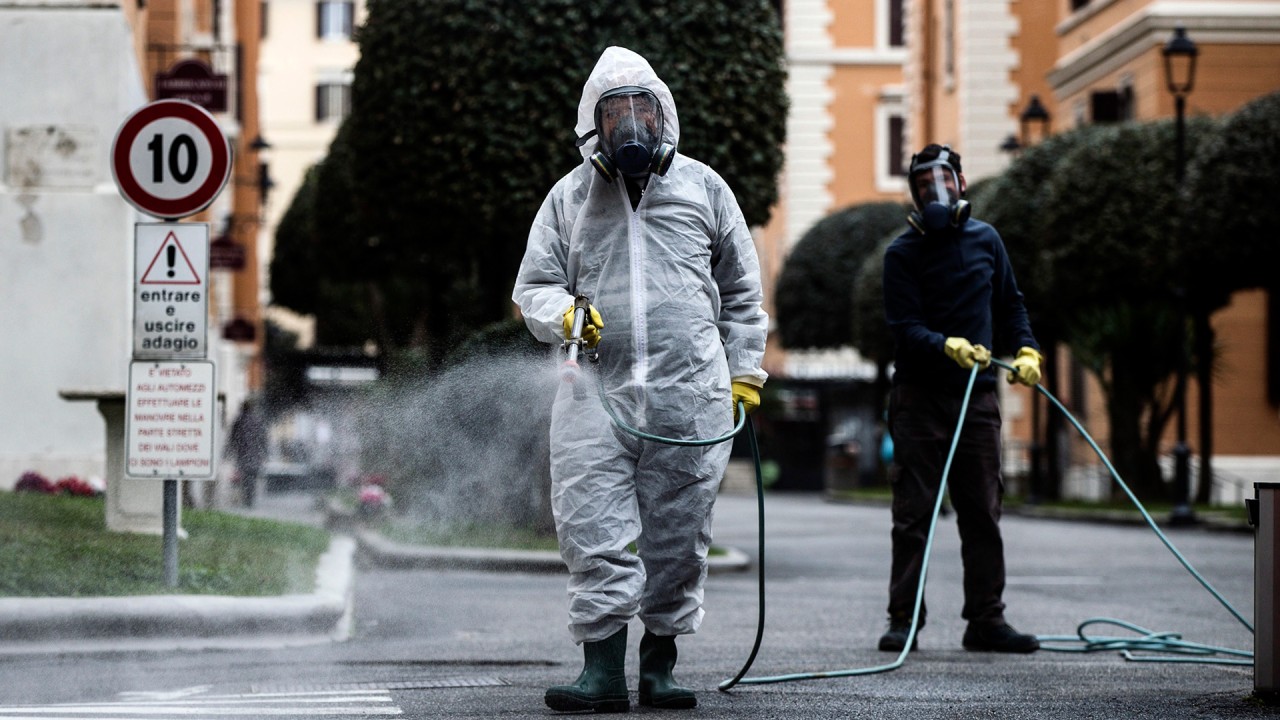
Covid-19 lessons not being learned, says global body that predicted pandemic
- Without change, we will fail to end this pandemic or avert another, according to board that in 2019 flagged ‘very real threat’ of a lethal respiratory pathogen
- Lamenting ‘cycle of panic and neglect’, it recommends international rules for emergency response, greater data sharing and a stronger WHO
There was a “very real threat” of a rapidly moving, highly lethal respiratory pathogen starting a pandemic, killing tens of millions and wiping trillions off the global economy, members of the Global Preparedness Monitoring Board (GPMB) wrote in their inaugural report. “The world is not prepared,” they said.
What is worse – according to their 2021 report, released on Tuesday – “there is scant evidence that we are learning the right lessons from this pandemic”.

07:07
The global spread of the highly contagious Delta variant of Covid-19
“If we do not change course – even with the results of our failings staring us squarely in the face – we will have squandered a rare and fleeting opportunity to implement the transformative changes needed,” wrote the board’s co-chair Elhadj As Sy, former head of the International Federation of Red Cross and Red Crescent Societies.
The latest report, released at the World Health Summit, hosted by several European leaders and WHO director general Tedros Adhanom Ghebreyesus this week in Berlin, says that without major reforms, the world will not have the capacity to end this pandemic or prevent the next one.
It lays out six major steps to prepare for future outbreaks and remedy the “growing nationalism, geopolitical tensions and deep inequalities” that it says have riddled the global response to Covid-19 and, without change, will continue to hinder getting it under control.
Those steps include:
- Strengthening global governance by adopting an international agreement on health emergency preparedness and response, and convening a summit of heads of state and other stakeholders on the issue;
- Building a strong WHO with greater resources, authority and accountability;
- Creating an agile health emergency system with better information sharing and a mechanism for research, development and equitable access to common goods;
- Establishing a collective financing mechanism for preparedness;
- Empowering communities and ensuring engagement of civil society and the private sector;
- Strengthening independent monitoring and mutual accountability for emergency preparedness and response.

06:06
Coronavirus: Which countries and regions in the world are most at risk in the Covid-19 pandemic?
The list adds to growing calls for reform before a special meeting of the WHO’s governing body, at which health ministers from nearly 200 countries are expected to discuss creating a global pandemic treaty.
Such a document, discussed informally for months, could strengthen the WHO and its health rules and even cover a wide range of issues from vaccine access to early warnings of outbreaks to data sharing.
The GPMB’s 12 members – who include Chinese Centre for Disease Control and Prevention chief Gao Fu, US National Academy of Medicine president Victor Dzau, former Russian health minister Veronika Skvortsova and Unicef head Henrietta Fore – explicitly threw their weight behind such an agreement, calling for steps to move it forward at next month’s meeting.
But they also raised concerns that “current processes to reform the health emergency ecosystem will perpetuate the existing fragmentation”. “Efforts are poorly coordinated and many of the countries and stakeholders tasked with implementation are excluded from these discussions,” they wrote.
Stakes are high for these reforms because they can determine the trajectory of the pandemic, the group said.
“If the first year of the Covid-19 pandemic was defined by a collective failure to take preparedness seriously and act rapidly on the basis of science, the second has been marked by profound inequalities and a failure of leaders to understand our interconnectedness and act accordingly” co-chair Sy said. “What will the third year bring?”
A year on, proposal to waive IP for Covid-19 vaccines is still in limbo
The board also found that world leaders made grand statements about preparing and responding to health emergencies but then failed to provide the WHO with enough financing to do its job. Not enough had been done by multilateral groups including the UN, the G7 and the G20, they said.
Global polarisation “characterised by heightened nationalism, distrust and inequality” had also accelerated during the pandemic.
“Change is possible … but not if countries continue to prioritise self-interest and competition, or lack willingness to sacrifice a little power, concede a small piece of sovereignty, to make a safer world for all,” Sy wrote in opening remarks.
The criticism echoed comments from an earlier WHO-backed independent review panel, who said a lack of international coordination and inequalities worsened the impacts of the pandemic.
The global emergency has been swept up in mounting tensions between the United States and China, with the US accusing China of obfuscating data from the early days of the outbreak, and China saying the US was politicising science and so far rejecting calls for further WHO access to its territory to trace the origins of the virus.
Meanwhile, a plan helmed by several health organisations to ensure equitable global vaccine access has been stymied by wealthy and vaccine-producing countries imposing export controls or buying up large quantities of doses for their own people.
The monitoring board did not point fingers at any countries in its report, but highlighted international failures and the major reforms it saw as critical for change.
“It is easy to be cynical and think that nothing can change, that inequality, inaction and division are unavoidable … that we are forever condemned to repeat this cycle of panic and neglect,” Sy said.
“But we must reject pessimism, recognise our common humanity and growing interdependence, and create a global health ecosystem that serves everyone. Together we must move from worlds apart to a world prepared.”

